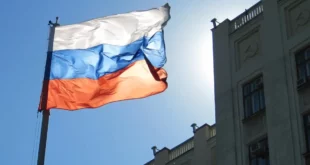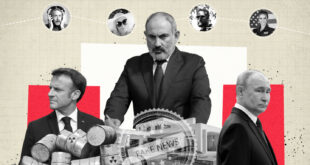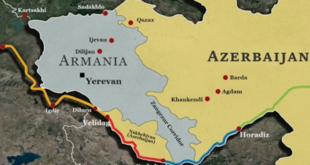Georgia’s breakaway regions, saying it had evidence Tbilisi was readying its forces for an attack.
Georgia denied it had any plans to attack the separatist Abkhazia and South Ossetia regions, but the Russian move marks a new escalation in a crisis between the two ex-Soviet neighbors that has already alarmed Georgia’s allies in the West.
Tbilisi accuses the Russian peacekeepers serving in the breakaway regions of siding with the separatists. A Georgian official said President Mikhail Saakashvili would make a statement later on Tuesday.
Russia announced the new troops four days after saying it would use force to defend its compatriots if Georgia attacked the regions, which threw off Tbilisi’s control in wars in the chaotic post-Soviet 1990s. Most residents hold Russian passports.
The Russian defense ministry said Georgian forces had been building up on Abkhazia’s borders, sending aircraft over the conflict zone and harassing Russian peacekeepers. Saakashvili has said he wants the Russian peacekeepers replaced by an international force.
“This turn of events has given rise to the necessity for a forced increase in the Russian armed forces peacekeeping contingent in the conflict zones, within the numbers set out in
… international agreements,” Russia’s defense ministry said in a statement.
It said the ministry’s objective was to “prevent any possibility of new bloodshed.”
PROVOCATION
In the first international reaction, France’s foreign ministry urged restraint and re-iterated its support for Georgia’s territorial integrity.
“We call on all parties to avoid all actions and provocation that could lead to an escalation. And we call for a peaceful dialogue between the parties,” foreign ministry spokeswoman Pascale Andreani told reporters at a regular news conference.
The latest crisis between Moscow and Tbilisi came after Russian President Vladimir Putin ordered officials to intensify ties with the separatists, citing concerns about the welfare of people living there.
Georgia called it a de facto annexation of its territory and NATO urged Moscow to revoke Putin’s order. Some observers said Russia was punishing Tbilisi for its ambitions to join the Western military alliance.
On coming to power in 2004, Saakashvili vowed to make reuniting the country his priority. He has proposed a deal under which Abkhazia and South Ossetia would enjoy broad autonomy in a federal structure, but separatist leaderships want independence.
Also this month, Tbilisi alleged that a Russian air force jet had shot down an unmanned Georgian aircraft carrying out reconnaissance over Abkhazia. Russia denied the allegation, saying it had been shot down by separatist forces.
The region to the north and south of the Caucasus mountains, also including Russia’s rebellious Chechnya, is of particular concern both to Russia and the West. Its patchwork of ethnic populations is a potential hotbed of conflict that could also disrupt vital energy supplies.
Â
The Russian allegations of a Georgian force build-up were dismissed in Tbilisi.
“All recent UN monitoring missions confirmed that Georgia is behaving in this region in accordance with previous agreements,” said Batu Kutelia, Georgia’s deputy defense minister.
“What we have there are only police forces to ensure security for the local population.”
Russia has peacekeeping forces in Abkhazia and South Ossetia as part of ceasefire agreements in the early 1990s that ended the fighting. In Abkhazia, a strip of land on the Black Sea coast, a United Nations mission supervises the ceasefire.
Source: Agencies
Â
 Eurasia Press & News
Eurasia Press & News



